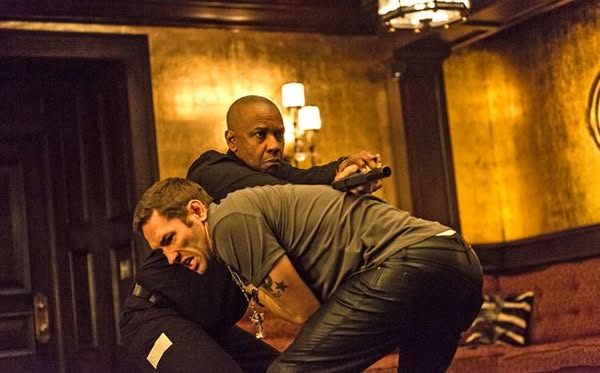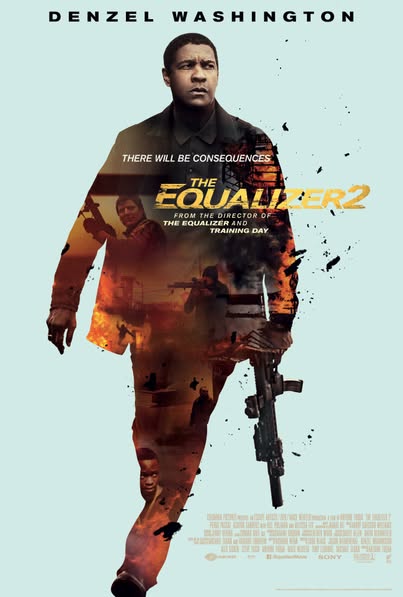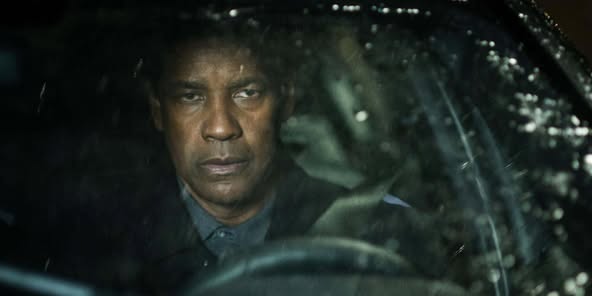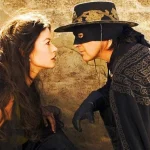The Equalizer (2014)

The Equalizer (2014) is a gripping action thriller that combines intense action sequences with a compelling narrative centered on themes of justice, redemption, and the morality of vigilantism. Directed by Antoine Fuqua and based on the 1980s television series of the same name, the film stars Denzel Washington as Robert McCall, a retired black-ops agent who seeks to live a quiet life but is drawn back into a world of violence to protect those who cannot protect themselves.

The story unfolds in Boston, where McCall works at a home improvement store. He appears to live a mundane life, yet hints of his dark past and formidable skills are revealed through subtle flashbacks. McCall is a man of principles; he spends his nights reading in a diner and befriends a young woman named Teri (Chloë Grace Moretz), who is caught in the grip of a violent Russian mob. When Teri suffers brutal abuse at the hands of her captors, McCall is compelled to take action, setting off a chain of events that will force him to confront his past and unleash his lethal abilities.
The film excels in its exploration of McCall’s character. Washington delivers a powerful performance, portraying a man who is both a protector and a lone wolf. His transformation from a seemingly ordinary man into a calculating and relentless avenger is both compelling and believable. The emotional depth he brings to the role adds layers to the character, making McCall not just a vigilante but also a man seeking redemption for his past actions.

The Equalizer is marked by its intense action sequences, which are expertly choreographed and filmed. The violence is visceral and impactful, but it is balanced with moments of tension and suspense. Fuqua’s direction ensures that each action scene serves a purpose, driving the narrative forward while highlighting McCall’s strategic thinking and combat skills. The film’s pacing is tight, keeping viewers engaged as McCall meticulously plans and executes his quest for justice.
The film also raises important questions about morality and justice. McCall operates outside the law, embodying the idea of the anti-hero who takes the law into his own hands. His actions challenge viewers to consider the ethical implications of vigilantism and the lengths one might go to protect the innocent. This moral complexity adds depth to the film, prompting audiences to reflect on the nature of justice in a flawed system.
The supporting cast enhances the story, with standout performances from Marton Csokas as Teddy, the ruthless enforcer of the Russian mob, and Moretz as Teri, whose plight serves as the catalyst for McCall’s transformation. Their characters add tension and urgency, creating a dynamic interplay between good and evil that drives the narrative.

Visually, The Equalizer is striking, with cinematography that captures the gritty atmosphere of Boston. The film’s aesthetic complements its themes, using lighting and color to evoke a sense of urgency and danger. The score, composed by Harry Gregson-Williams, further amplifies the film’s emotional depth, enhancing both the action and quieter moments.
In conclusion, The Equalizer is a riveting action thriller that combines intense performances with a thought-provoking narrative. Denzel Washington’s portrayal of Robert McCall elevates the film, making it not just an action movie but a story about redemption and the moral dilemmas faced by those who seek justice. With its expertly crafted action sequences and complex themes, The Equalizer stands out as a compelling exploration of what it means to fight for the vulnerable in a world where justice is often unattainable. The film resonates with audiences, making it a memorable entry in the action genre.











